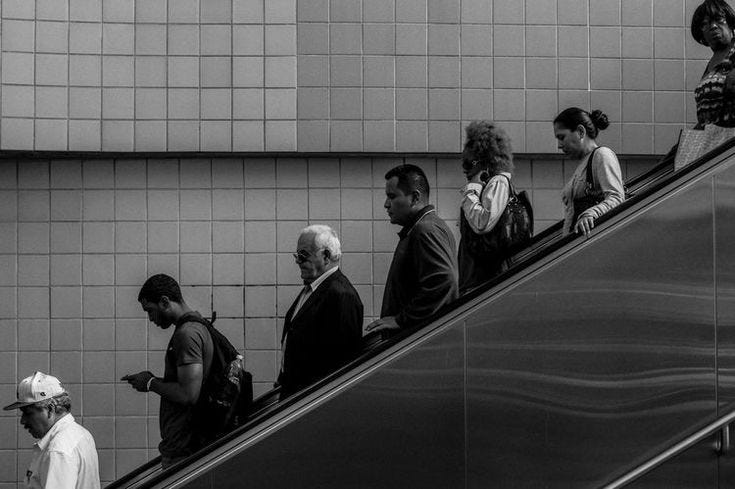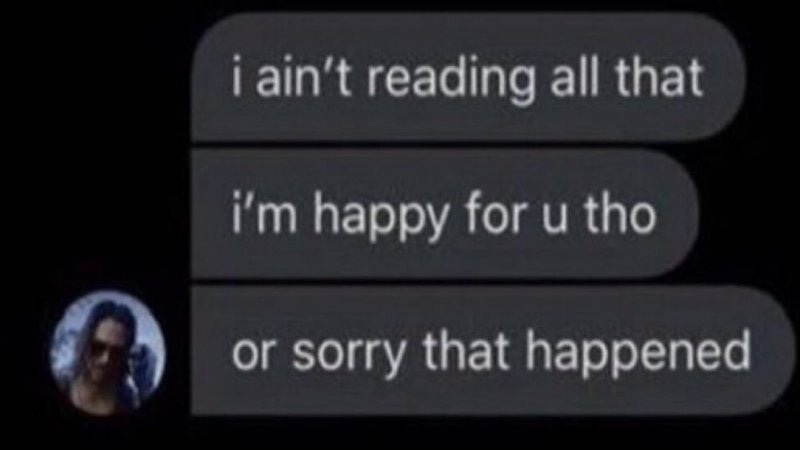Why is no one sincere anymore?
It’s not that deep. I’m not reading all of that. That’s cringe. Stop being pretentious.
sincerity
/s(ɪ)nˈsɛrɪti/
noun
freedom from deceit, hypocrisy, or duplicity; honesty in intention or in communicating; earnestness.
Irony has taken over; sincerity is dead. I’m aware that this is a very dramatic statement, but it's how I feel sometimes. Especially when I see a post or art that tries to communicate something sincere and genuine from its creator, and the commentary on it is just people desperately looking for jokes to make rather than actually engaging with the piece.
Now I’m aware that irony and humour have been a huge part of internet culture since its conception. Even in its infancy there was a focus on trying to make each other laugh, which makes sense because it’s something humans have always done. Humour is a vital part of communication and socialisation. Yet, as technology progresses and each generation grows up increasingly online, it's obvious that humour and its purpose have drastically changed. There is suddenly always a time and a place to mock. Irony has no more bounds.
Compulsion for self-flagellation
I will assume—perhaps ignorantly—that we are all aware of the ‘dark humour’ or ‘it’s just how I cope’ attitudes; maybe you identify with these phrases. There isn’t anything inherently wrong with using humour to cope with your problems/trauma, but I am increasingly seeing these statements used to justify the mocking of other individuals or groups. In a world where a meme or funny comment is more likely to get likes than a thoughtful, sincere post, it makes sense why we are struggling with earnestness.
And irony's okay, I suppose // Culture is to blame //You try and mask your pain in the most postmodern way — The 1975
I myself would say that my humour is quite dry, sarcastic, and indeed ironic. I have also grown up with unsupervised internet access and will like a funny post. I want to make it clear I am obviously not anti-being funny, whatever that means. I love incorporating my humour into my writing and everyday conversations, even if they are more hard-hitting. However, as I’ve matured and my grasp on empathy has tightened, I yearn for more spaces like Substack where art and genuinity are actually valued. Online culture awards the ‘coolness’ of not caring. Comments are full of the same repeated, recycled jokes essentially saying:“It’s not that deep.”. The kid in class who got all the laughs for insisting, “The curtains are just blue,” as your English teacher desperately tries to explain the concept of symbolism. Write a paragraph spilling your guts to your long-term partner and get hit with a “I ain’t reading all that”. Dare to tell a story to your friends and use a word with more than four syllables, and it’s “pretentious.”. How dare you be sincere, “It’s cringe.”.
Hamartia
It’s easy to say, “Just get off your phone,” to any form of online commentary, but I think we underestimate how much media and online culture are intertwined with who we are as humans now, partially because it’s a scary thing to admit that there is no line anymore between reality and what happens online. Yet it’s true everything that happens online eventually seeps into the real world; it’s a culture. I think our part is attempting to seep out the toxic parts of this culture. Younger people pride themselves on being ironic and not taking themselves too seriously—superficially a charming trait. We light-heartedly poke fun at older generations for their ‘cringe jokes,’ which, yes, this has always been a thing. However, I believe we have steered too far, due to the amplifying, escalating nature of social media. The excuse of humour is truly just a guise for a larger problem. There is a darker issue at hand, a fear of what we will see and have to confront once we rip off the thin veil of irony. What will we feel?
‘Can we talk about the political and economic state of the world right now?’
On a political note, I also believe this rise of ‘dark humour’ and over-the-top mocking of anything that conveys sensitivity and emotion is linked to the rising right-wing shift seen in media. It’s an easy way to reject empathy and art. Art is inherently a liberal thing. The first thing extremist governments will often do is cut funding to art, censor it, and manipulate it to serve as propaganda—and people are actively feeding into this process online (knowingly or not), and it makes sense considering the global political atmosphere. You make an emotional post online about fears of censorship and revoked freedom of speech. Top comment: “You guys are so dramatic. It’s not that deep. Why are you crying?”.
It’s Okay.
It starts with you. Believe that you are not pretentious for reading a book or watching a non-mainstream movie. You are not cringe; if you are, it is okay. No one has been imprisoned for being cringe. You do not have to make it into a joke with layers of irony; let some things be sad and tragic. You can think the curtains are not “just blue”; it’s okay if no one laughs; it’s okay if you’re uncool. Don’t fight the hilarity and absurdity of life but let sincerity be every now and then.






Unfortunately, sincerity is directly correlated to the loss of power. Vulnerability nor compassion is seen as a reflection of strength. In world where I assume the majority feels powerless, they’ll revert to acts of aggression and degradation to uplift themselves from their powerlessness. Great writing, though, I love the inclusion of comedy to show the nuanced nature of sincerity verses heartlessness.
Completely agree! We need more people being earnest.